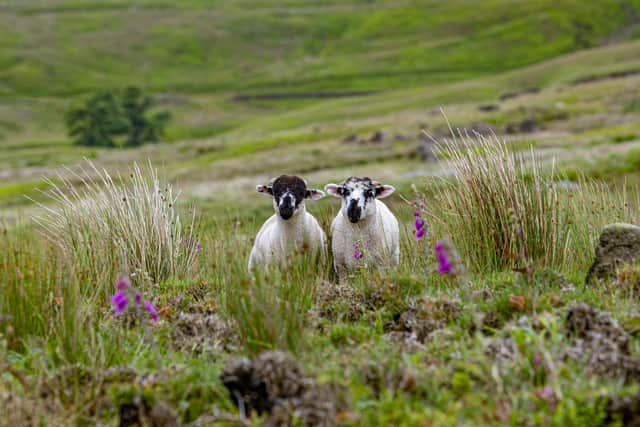Investigation into severity of dog attacks on sheep calls on farmers to help with survey
For the past 10 years, NSA has gathered data from UK sheep farmers on the major problem of sheep worrying when a dog or dogs chase and/or physically attack sheep.
It can cause significant stress to sheep and have further problems that can include miscarriage of lambs, physical injury and in many cases, death of the animals affected.
Advertisement
Hide AdAdvertisement
Hide AdTo continue to raise awareness of these incidents and find ways of improving education, guidance and cooperation NSA is inviting UK sheep farmers to contribute to the survey that will remain open from until Wednesday March 15.


NSA Chief Executive Phil Stocker said: “Sheep farmers across the UK nations are regularly faced with the dreadful consequences of sheep worrying by dogs. Attacks not only compromise animal welfare but also cause great stress, anxiety and financial loss to farmers themselves.
“NSA urges anyone previously affected by this issue to complete this year’s survey. Your contribution helps to create a more accurate representation on the intensity of the issue, critical for NSA when working towards increased understanding of the problem, whether that be from the UK’s dog loving public or the UK Government that decides what legislation regulates the act and punishes those found guilty of allowing attacks to happen.”
NSA launches its annual sheep worrying campaign, including releasing results of the survey each winter/spring.
Advertisement
Hide AdAdvertisement
Hide AdThe timing is significant as this is an especially important time for UK sheep flocks when many ewes are in the final stages of pregnancy or have young, vulnerable lambs at foot meaning the risk of miscarriage or mismothering due to stress from a sheep worrying attack is increased.
A West Yorkshire farmer said the issue had become worse since COVID.
Lisa Metcalfe said: “We have had issues with dogs attacking and killing our sheep for as long as I can remember but during the Covid-19 pandemic the situation has definitely got worse. Sadly it is a yearly occurrence and often results in us just finding dead sheep with no clue as to who is responsible.
"There has been many occasions where I have contemplated selling my sheep as I do not think I could go through this again.”
Advertisement
Hide AdAdvertisement
Hide AdThe survey comes as rural insurer, NFU Mutual also revealed earlier this month that it estimated farm animals worth almost £170,000 were severely injured or killed by dogs in the North East in 2022 - a rise of 43.7 per cent in cost compared to 2021, while across the UK as a whole, dog attacks on farm animals were estimated to cost £1.8m in 2022.
Its latest survey of more than 1,100 dog owners found that despite 64 per cent of owners admitting their dogs chase animals, almost half believed their dog was not capable of injuring or killing livestock.
Nearly two thirds of owners (64 per cent) said they let their dog roam off-lead in the countryside. However, almost four in ten (39 per cent) admit that their pets do not always come back when called.
